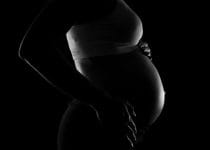All About Pregnancy: A Guide For Expectant Parents
Pregnancy is an exciting and transformative time, but it can also be overwhelming for first-time parents. From understanding your changing body to preparing for the arrival of your little one, there's a lot to navigate. This comprehensive guide will provide you with everything you need to know about pregnancy, from conception to delivery.
**Conception and Prenatal Development**
Pregnancy begins when a sperm cell fertilizes an egg, forming a zygote. The zygote then divides into a ball of cells called a blastocyst, which implants itself in the lining of the uterus. Over the next nine months, the embryo develops into a fetus with distinct organs, limbs, and facial features.
**Trimesters of Pregnancy**
Pregnancy is divided into three trimesters, each with its own unique changes and milestones.
* **First Trimester (0-12 weeks):** This trimester is characterized by rapid growth and development. The embryo implants in the uterus, and the major organs begin to form. Morning sickness, fatigue, and breast tenderness are common symptoms.
* **Second Trimester (12-28 weeks):** The fetal heartbeat becomes audible, and the baby begins to move. The mother's belly starts to show, and she may experience increased appetite and weight gain.
* **Third Trimester (28-40 weeks):** The baby's lungs and brain continue to develop, and he or she becomes more active. The mother may experience swelling, backaches, and difficulty sleeping.
**Prenatal Care**
Regular prenatal care is essential for monitoring your health and the baby's well-being. Your doctor will schedule appointments to check your weight, blood pressure, and urine. You will also undergo ultrasounds to assess the baby's growth and development.
**Diet and Exercise During Pregnancy**
Eating a healthy diet is crucial for providing the nutrients your growing baby needs. Focus on fruits, vegetables, whole grains, and lean protein. Exercise can also benefit your pregnancy by reducing stress, improving circulation, and strengthening your muscles. However, it's important to avoid strenuous activities or contact sports.
**Labor and Delivery**
Labor begins when the uterus contracts, causing the cervix to dilate. The baby's head descends through the birth canal, and eventually, the baby is born. Delivery can be vaginal or cesarean, depending on the circumstances.
**Postpartum Recovery**
After giving birth, your body will need time to recover. You may experience vaginal bleeding, breast tenderness, and mood swings. It's important to rest and allow your body to heal. You will also need to take care of your newborn baby, which can be both rewarding and challenging.
**Remember:**
* Every pregnancy is unique, so don't compare yourself to others.
* Trust your instincts and don't hesitate to reach out to your doctor with any concerns.
* Pregnancy is a time for joy, growth, and preparation. Embrace this special journey with your loved ones.


